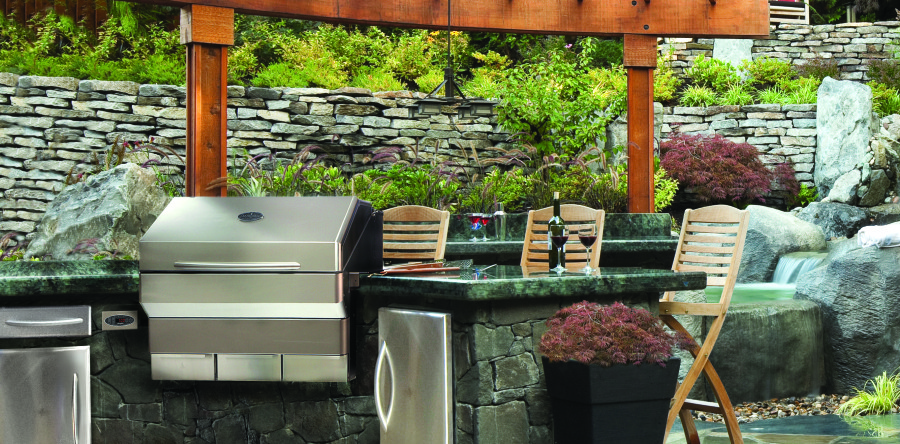If you’re in the market for a new grill, you may be trying to decide which type of grill you should buy. According to the HPBA 2014 State of the Barbecue Industry Report, sixty-one percent of households that own a grill, own a gas grill. The following information will help you with your decision by showing you the pros and cons of gas grills so that you can make an informed decision on whether you want to go with natural gas or liquid propane.
Understanding Propane Barbecues
Majority of grills currently on the market are fueled by liquid propane. Liquid propane comes in a portable tank that fits underneath or beside your grill. The tanks can be refilled by any qualified personnel at a gas station or you can buy pre-filled tanks. The tank connects directly to your grill with a connector or valve that looks similar to those used on garden hoses. Before use, you must decompress the propane by turning a valve that releases the gas and distributes it to the burners. A spark from an instant igniter creates a flame and heats the gas to create a hot cooking surface. The most common size is a 20 lb. tank, which provides about 25 hours of cooking time.
Propane Barbecue Benefits
Propane barbecue grills are more convenient to use because they’re portable. The propane tank can easily be detached and transported as needed with the grill. Propane provides 2500 BTUs (British Thermal Units) per unit volume, which is higher than the 1000 BTUs natural gas provides per same unit size. Propane is environmentally friendly in that it does not contain lead, creates low greenhouse gas emissions and produces water vapor and carbon dioxide, which are both found naturally in the environment.
Propane Barbecue Disadvantages
Propane is more expensive than natural gas because it has to be transferred and stored. Propane gas barbecue grills create a wet heat that can sometimes change the texture of the food being cooked. Propane, like natural gas, explodes easily. But it’s heavier than air and stays concentrated and dangerous for longer periods of time than natural gas, which dissipates easily because it’s lighter than air.
Understanding Natural Gas Barbecues
Natural gas barbecue grills cook food in the same way as propane barbecues, except your gas source is attached to your house. Your grill needs to be plugged into a gas line in your house to access the fuel. A hose is attached to the burners on your grill which are ignited by a spark created by an electronic igniter.
Natural Gas Barbecue Benefits
Fuel is automatically provided so you won’t run out even during the biggest barbecues. Natural gas is cheaper than propane at typically 1/6 of the cost of propane. Natural gas is classified as a greenhouse gas. Propane is not, even though it is also an environmentally fuel.
Natural Gas Barbecue Disadvantages
The location of your barbecue grill will be fixed. You won’t be able to move it from one end of your deck or patio to the other, although a long, flexible gas pipe can give you some mobility. Professional installation is required to use a natural gas barbecue grill and the initial cost of gas plumbing can be expensive. Natural gas grills are sometimes more expensive than propane ones.
The experts at Increte of Houston can help you with all of your grill and outdoor kitchen questions. Contact us online or call us at (281) 499-3990.


Recent Comments